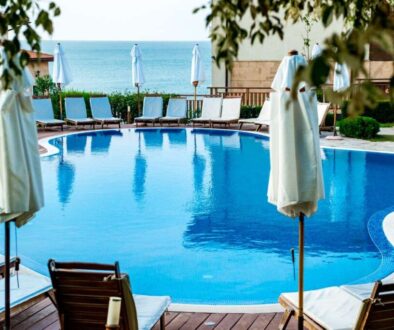Coastal vs. Inland Pool Routes in Florida
Understanding the nuances between coastal and inland pool routes is essential for anyone looking to enter the pool service industry in Florida. This vibrant state is known for its picturesque beaches and bustling inland communities, making it an ideal region for pool service businesses. In this article, we will compare the benefits and challenges of coastal and inland pool routes, delve into market trends, and provide you with insights to help you make an informed decision about which route may suit your needs best.
Introduction
Florida’s pool service industry is thriving, with numerous opportunities for entrepreneurs. Whether you are an experienced pool service professional or a first-time buyer, understanding the differences between coastal and inland pool routes can significantly impact your success. Coastal areas often present unique challenges and opportunities, while inland regions provide their own set of advantages. In this blog post, we will explore both options, analyzing factors such as customer preferences, operational logistics, and the overall market environment. By the end, you will have a clearer picture of which route may be the best fit for your business.
Coastal Pool Routes: The Scenic Choice
Coastal regions in Florida are often characterized by their stunning views, luxury homes with pools, and high demand for pool maintenance due to the warm tropical climate. One of the primary advantages of owning a coastal pool route is the potential for higher income. Properties along the coast often have larger pools and more luxurious amenities, leading to higher service fees.
For instance, areas like Miami Beach and Naples boast a clientele that values quality service and is willing to pay a premium for it. The average pool service fee in these areas can be significantly higher compared to inland locations. Furthermore, coastal areas experience a consistent influx of tourists, which can lead to additional revenue through vacation rentals that require regular pool maintenance.
However, there are challenges to consider. The competition in coastal regions is often fierce, with many established companies already servicing the area. As a newcomer, you will need to differentiate yourself through exceptional service or niche offerings. Additionally, the operational logistics can be complicated, particularly during peak tourist seasons when demand surges, placing pressure on your resources.
Inland Pool Routes: Stability and Growth
Inland Florida offers a different landscape for pool service businesses. Cities like Orlando and Jacksonville may not have the same scenic allure as coastal areas, but they present a unique set of advantages. One of the most notable benefits of inland pool routes is the demand from residential neighborhoods. Many families in these areas invest in pools for recreation, leading to a consistent customer base.
Inland clients often prioritize reliability and value, making them more receptive to competitive pricing and service packages. This environment allows for easier entry into the market, as the competition is generally less intense than on the coast. Moreover, inland regions frequently feature more stable year-round demand, as families use their pools throughout the warmer months, which can provide a steady income stream.
However, the average service fees in inland areas may be lower than those along the coast, impacting your overall income potential. It’s also essential to consider the demographic differences—while coastal areas attract luxury clients, inland regions may require a more diversified service offering to cater to budget-conscious customers.
Market Trends: Understanding the Landscape
When considering coastal vs. inland pool routes, it’s essential to analyze market trends that can influence your business strategy. According to recent industry reports, the pool maintenance industry in Florida is projected to grow significantly over the next few years. This growth presents opportunities for established businesses and newcomers alike.
In coastal areas, the luxury market continues to thrive, driven by high net-worth individuals seeking exceptional service for their properties. As more homeowners invest in pool upgrades and automation systems, there is an increasing demand for specialized maintenance services. Additionally, the rise of eco-friendly and energy-efficient pool solutions is gaining traction, creating a niche that coastal businesses can exploit.
Inland areas are also experiencing growth, especially with the increasing popularity of suburban living. As families relocate from urban centers, the demand for pool services in these neighborhoods has surged. Understanding these trends will help you tailor your marketing strategies and service offerings to meet the needs of your target audience.
Operational Logistics and Customer Preferences
The operational logistics of running a pool service can vary significantly between coastal and inland routes. Coastal pool routes may require additional considerations for weather-related challenges such as hurricanes or tropical storms. Ensuring that your service vehicles and equipment are prepared for adverse weather conditions is crucial in these regions.
In contrast, inland routes might not face the same level of weather-related disruptions, but they may require a more strategic approach to routing and scheduling. Understanding customer preferences is also vital; inland clients may prioritize scheduling flexibility, while coastal customers might expect more premium service options tailored to luxury lifestyles.
Implementing a robust customer management system can help streamline operations in either route type. This system could include scheduling software, customer relationship management tools, and automated billing services to ensure smooth communication and operations.
Financial Considerations: Comparing Potential Returns
When examining the financial aspects of coastal vs. inland pool routes, potential returns on investment should be a key consideration. Coastal routes, with their higher service fees, can yield significant profits, especially if you establish a loyal clientele. However, higher operating costs, such as insurance and equipment maintenance, must also be accounted for.
Inland routes typically have lower overhead costs, making them an attractive option for those looking to minimize initial investments. The steady demand can lead to reliable income, but it’s essential to develop a competitive edge to maximize profit margins. Consider offering tiered service packages or add-on services such as pool cleaning, equipment repair, or chemical balancing to enhance revenue streams.
Ultimately, your financial success will depend on your ability to adapt to the market environment, manage costs effectively, and meet customer expectations, regardless of your chosen route.
Best Practices for Choosing Between Coastal and Inland Routes
Choosing between coastal and inland pool routes requires careful consideration of your business goals and personal preferences. Here are some best practices to guide your decision:
- Research Local Markets: Conduct thorough market research to understand customer demographics, competition levels, and pricing structures in both coastal and inland areas. This will provide valuable insights into which route may be more lucrative for you.
- Evaluate Your Strengths: Consider your experience, skills, and resources. If you excel at customer service and building relationships, a coastal route may suit you as it often demands a higher level of engagement with clients. Conversely, if you have strong operational skills and prefer a steady workflow, an inland route may be more fitting.
- Assess Growth Potential: Analyze the growth potential in both areas. Coastal regions may offer higher short-term profits, while inland areas can provide long-term stability. Determine your risk tolerance and which option aligns with your business strategy.
- Consult Experts: Engage with a pool business broker experienced in the Florida market. They can provide invaluable insights and assist you in finding the right pool routes for your needs. For instance, Pool Routes for Sale can help identify lucrative opportunities tailored to your preferences.
Conclusion
In conclusion, the choice between coastal and inland pool routes in Florida ultimately depends on your business goals, risk tolerance, and personal preferences. Coastal routes offer the allure of higher earnings and luxury clientele, while inland routes provide a stable and reliable customer base with lower competition.
Whichever route you choose, understanding the market dynamics, operational logistics, and customer expectations will be vital to your success. As you embark on this exciting journey, consider reaching out to experts like Tower Business Brokers, who can guide you through the purchasing process and help you find the perfect pool route for your business needs. Start your journey towards pool route ownership today and take advantage of the thriving pool maintenance industry in Florida!



